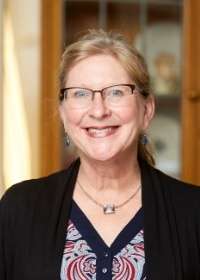

Michelle (Shelley) McGuire, Ph.D., is Director and Professor of Nutrition in the Margaret Ritchie School of Family and Consumer Sciences at the University of Idaho. Shelley received her BS in biology and MS in nutritional sciences from the University of Illinois and her PhD in human nutrition from Cornell University. She has a background in human physiology and nutrition, with specific expertise in maternal/infant nutrition, human milk composition, nutritional assessment, and milk and fecal microbiomes. Dr. McGuire has conducted studies related to myriad human milk components including minerals, hormones, lipids, pesticides, allergens, bacteria, and most recently SARS-CoV-2. She has overseen a variety of projects related to human nutrition and lactation funded by the Bill and Melinda Gates Foundation, the National Institutes of Health, the National Science Foundation, and the US Department of Agriculture, as well as a variety of industry and commodity sources. Shelley has twice served on the executive committee of the International Society for Research in Human Milk and Lactation, including secretary and treasurer; has served on the executive board of the American Society for Nutrition; and is currently serving as treasurer on the board of directors of the Association of Nutrition Departments and Programs. A seasoned science writer, Dr. McGuire is author of two college-level introductory nutrition textbooks and in 2018 she received the Excellence in Nutrition Education Award from the American Society for Nutrition. Dr. McGuire lives in Moscow, Idaho with her husband and research partner, Dr. Mark McGuire, and 2 Nova Scotia Duck Tolling Retrievers.
The onset of the COVID-19 pandemic brought with it substantial and understandable concern around the issue of potential vertical transmission from mother to infant during breastfeeding. Early in the pandemic, application of the precautionary principle coupled with little-to-no data resulted in some organizations and countries recommending that infected breastfeeding women cease breastfeeding or be separated from their infants. This public panic was quickly followed first by publication of several papers finding no evidence of the virus in milk, but there were substantial flaws in the methods used. Subsequent studies of higher quality, however, reported evidence of SARS-CoV-2 in milk produced by infected women although nothing was known about viability of the virus. To help find accurate answers to the immediate questions at hand, we teamed up with several other research groups to rigorously analyze milk produced by infected women beginning in the week following COVID-19 diagnosis. Importantly, milk collection procedures were optimized and analytical methods validated for use in human milk. To date, a total of 64 women have been studied for up to 2 months post-infection, and 316 milk samples have been analyzed. None of the samples provided evidence of SARS-CoV-2 presence. Conversely, most (75%) contained IgA specific for the receptor binding domain (RBD) of SARS-CoV-2; anti-RBD IgA persisted until 2 months in most women. There was some evidence of SARS-CoV-2 on the breast prior to washing, but viability remains unknown. These results collectively support recommendations encouraging lactating women to continue breastfeeding during and after COVID-19 illness.